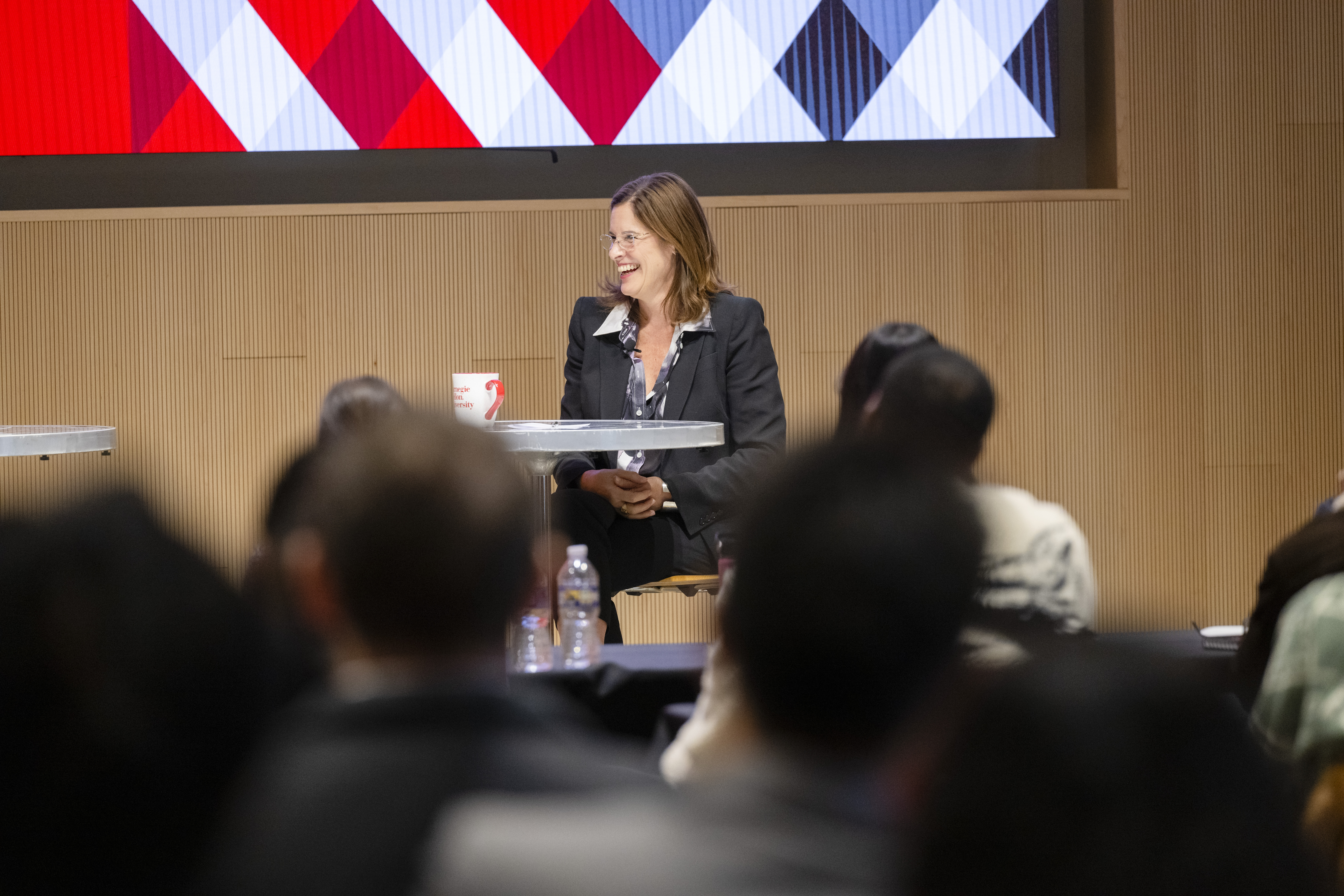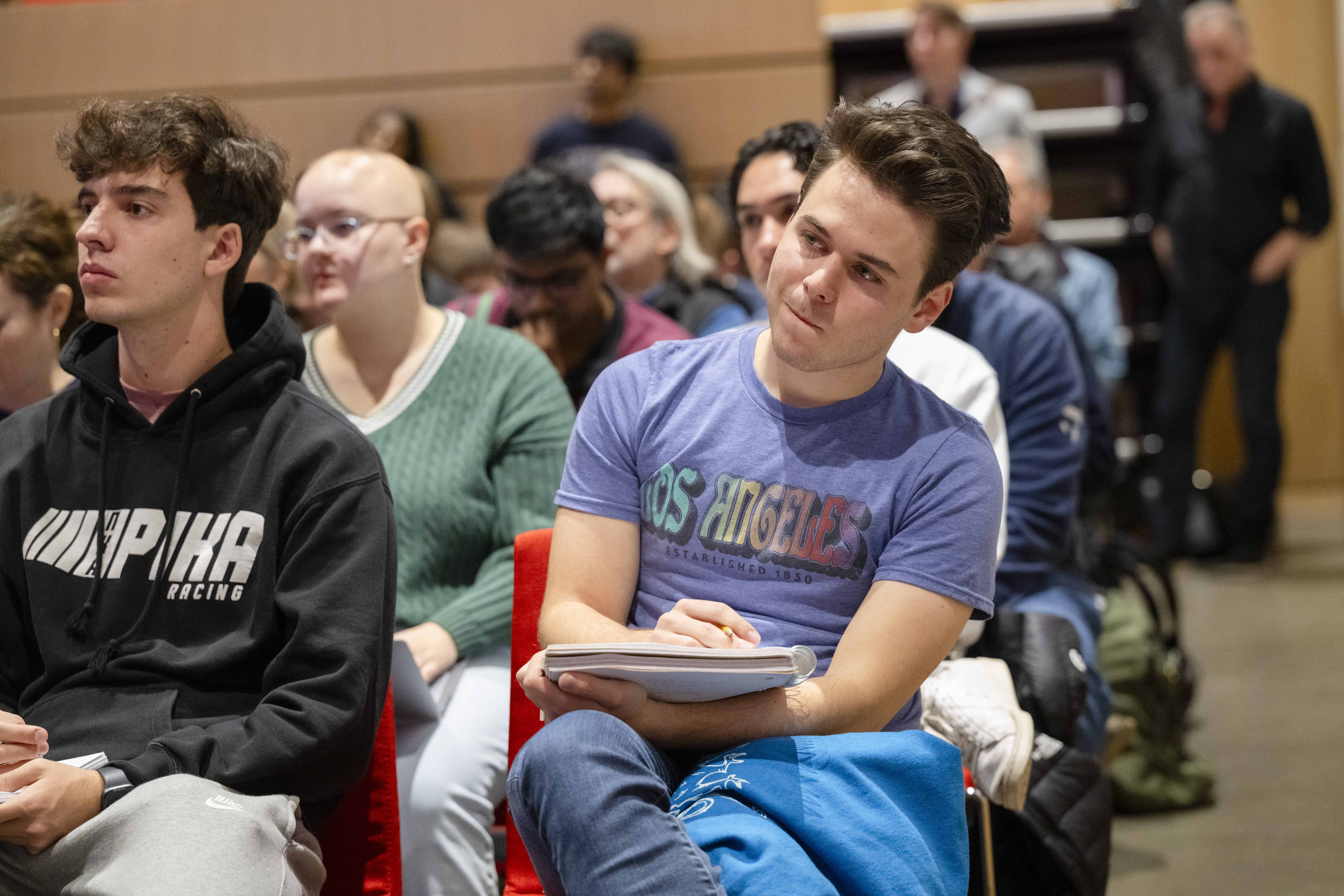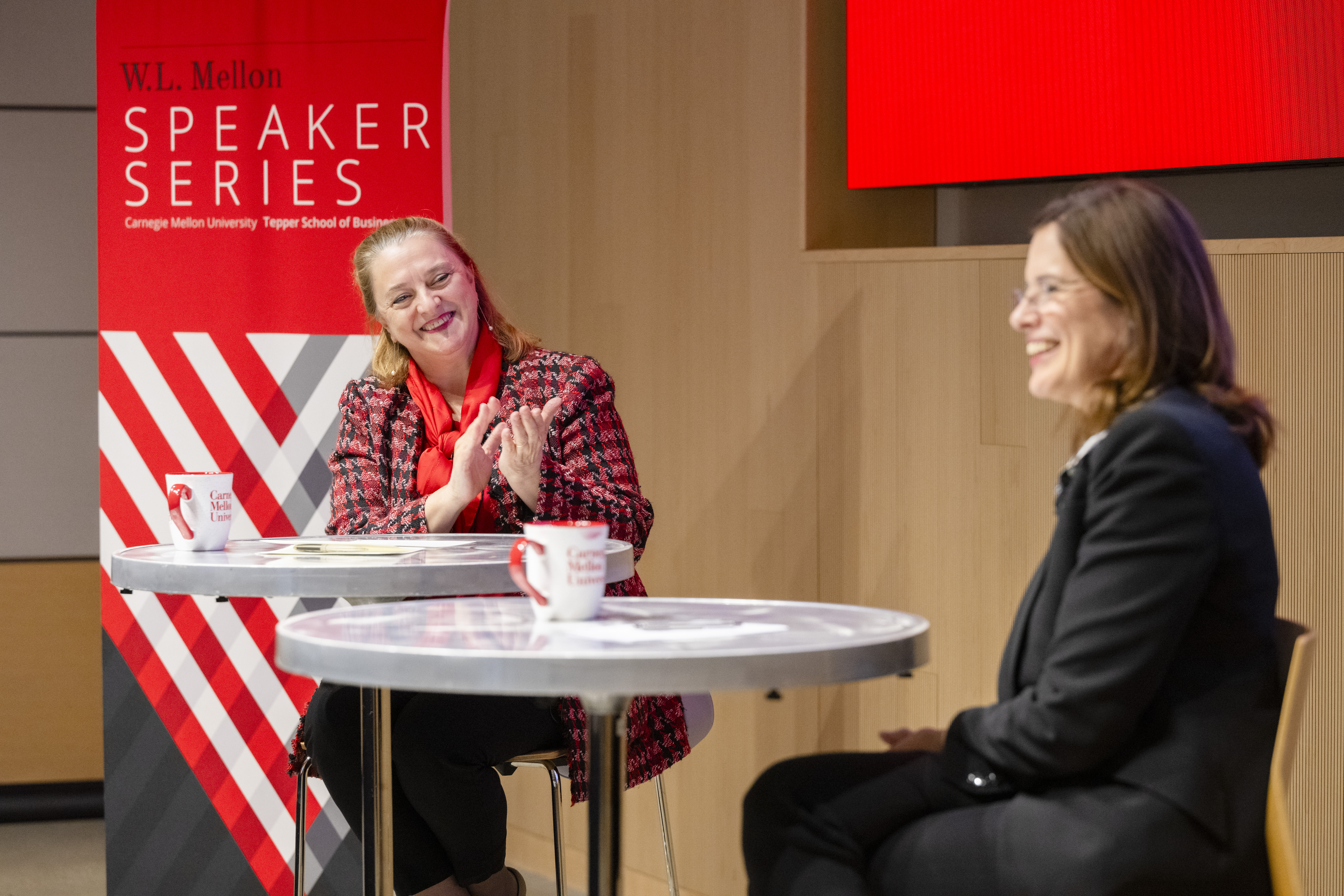W.L. Mellon Speaker: Christina Cassotis
Christina Cassotis was born to be in aviation. The New Hampshire native recalls her Pan Am pilot father jetting everywhere from Dakar to Rio, thinking “he had the greatest job in the world.”
Years later, as CEO of the Allegheny County Airport Authority (ACAA), Cassotis has led the transformation of Pittsburgh International Airport (PIT) into a leading global facility, recruiting multiple new domestic and international carriers, adding numerous routes, and directing the creation of PIT’s microgrid, making it the first global airport entirely independent from the traditional power grid. She’s currently spearheading the billion-dollar construction of PIT’s new, smart terminal, scheduled to open in early 2025.
Cassotis recently shared her experiences and insights with the Carnegie Mellon University community as part of the Tepper School’s W.L. Mellon Speaker Series.
The hour was opened by MBA student Stephanie Ho and Jim Jen, Distinguished Service Professor of Entrepreneurship and Director of the Carnegie Mellon Corporate Startup Lab. Dean Isabelle Bajeux-Besnainou moderated the dynamic conversation.
Cassotis described stints as a bartender and consultant, developing skills she relies on today. “You have to understand people,” she explained. “Bartending, you take care of lots of different people with lots of different issues, at the same time – actually perfect for consulting. Those experiences have served me well in this position, which is filled with numerous partners with very different agendas. You’ve got to be able to lean into your relationships and your skills at finding something in common that you can build from.”
“This new terminal is going to be spectacular. I promise,” - Cassotis said with a smile.



Those leadership skills helped her successfully steer her organization through the pandemic. “We huddled in a conference room for eight hours and put forth every single policy that would drive us through,” she recalled. “My senior leadership team is very used to making decisions quickly – with imperfect information.” Among other things, they split teams for administrative functions, opened empty parking lots for food drives, and housed 100 planes from partner airlines on the center runway to both aid the community and industry while remaining sustainable during the turmoil.
“I believe in aviation,” she declared. “I’ve seen the shocks after 9/11, after the recession, after the Gulf War. I know that aviation always comes back, and I knew we had a really important job to do. We had to keep the airport open.”
Cassotis described the continuing challenges of her key role attracting additional airline service. “We are always looking at opportunities around the world for expanded air service, both cargo and passenger,” she said. “For airlines to open up a new market, we have to sell, sell, sell – and we don't sell the airport. We talk about the market.” Robotics and the innovation taking place in Pittsburgh have served as a draw.
The pandemic underscored the importance of diversification, “If there's another extra external shock, we need a revenue source that is different from our primary purpose of business.” To this end, at PIT, “No one carrier dominates. We have every single domestic airline except two.” The ACAA is also exploring land use and investing in the production of sustainable aviation fuel on site to further strengthen their business model.
Cassotis elaborated on the ultimate decision – undertaken with PIT’s airline partners – to construct a new facility, citing costly issues including an un-expandable TSA checkpoint, eight miles of bag belt, and difficulty retrofitting technology through concrete. “Thirty years is a good useful life for a building,” she said. “Either you reinvest or look at an alternative.”
She takes a broad view of the “smart” airport. “Many people think ‘smart’ means the technology you’re putting in,” she explained. “To me, smart means it works for everyone. It’s adaptable. If nobody’s at the counter when you have a question, you're looking for people. We have to make sure that technology is an enabler and not a substitute.”
With a people focus at the core of her leadership style, it’s not surprising that she views sustainability broadly - encompassing environmental, workforce, and financial sustainability. The new terminal, among many things, will be LEED gold certified, and existing ramp concrete is being re-purposed as a new roadway base layer. Moreover, the ACAA has built a workforce development program using the construction site for training, created on-site childcare, and worked for additional public transit to the airport.
Beginning in 2006, the W.L. Mellon Speaker Series has provided an opportunity for students to interact with global leaders, CEOs, and management experts.
